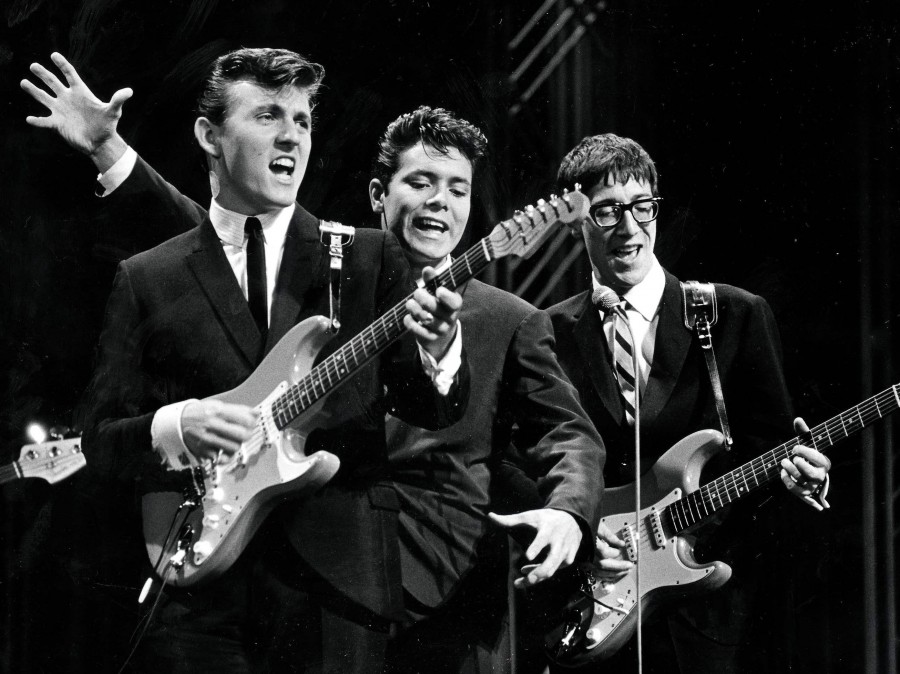By this day in 1964, a few acts from the U.K. had already cracked the American charts. When the The Beatles made their U.S. television debut on The Ed Sullivan Show, the door was symbolically kicked wide open. The Rolling Stones, The Kinks, The Who, Herman’s Hermits — they all sold millions here. But for whatever reason, a few great British bands from that era did not make the trip across the pond.
Lenny Kaye was a teenager at the time. Best known as the guitarist for the Patti Smith Group, he’s also a great collector of rock ‘n’ roll obscurities, who curated a now-legendary box set of ’60’s rock music, 1972’s Nuggets.
“I was perfectly positioned to be swept up in the hysteria,” Kaye says. “The summer before, I’d learned my first chords on the guitar, hoping to be a lonely folk singer in the backyard. And then, all of a sudden, an entirely new role model and aspirational ideal came before me on television.”
Kaye spoke with NPR’s Arun Rath about five of his favorite Brit bands from the era who simply never made the trans-Atlantic trip. Listen to their conversation at the audio link, and browse the music below.
9(MDAxNzk1MDc4MDEyMTU0NTY4ODBlNmE3Yw001))
Playlist
Lenny Kaye's 5 Bands Missing From The British Invasion


The Shadows, "Apache"
One of my favorite British bands that never got over here were The Shadows. They were originally Cliff Richard's backing band — he was kind of referred to as "the English Elvis." It was definitely a new sound and a real signal that the electric guitar, which was so important to all the British beat groups, was establishing itself as the texture and the instrument of its time. The Beatles were very big Shadows fans.

The Big Three, "Some Other Guy:
The Big Three were one of the oldest groups; they started in 1959. Brian Casser, from the group, was originally in a skiffle band with Bill Wyman from The Rolling Stones — skiffle being a kind of folk music played with guitars and homemade instruments, a way in which the British bands could acquaint themselves with American roots and folk roots, and kind of remove themselves from the glossy and overproduced pop artists of the time. Johnny Hutchinson from The Big Three was The Beatles' first choice to be the drummer, before they chose Ringo to replace Pete Best.

The Merseybeats, "I Think Of You"
The Merseybeats were also from Liverpool, and were one of the earliest beat groups that took over the British charts in 1963. Their records are very pop and didn't really reflect their harder sound. They would later change their name to The Merseys and do a song in 1966 called "Sorrow," which is quite a British classic. David Bowie covered that on his Pin-Ups record.

The Pretty Things, "Road Runner"
Lead guitarist Dick Taylor actually started out as the bass guitarist for The Rolling Stones — he went to art college with Mick and Keith. But The Pretty Things are also interesting because they were one of the only groups that made the transition to psychedelia from being a British beat group. Their album S.F. Sorrow is considered one of the first rock operas; it's kind of trippy, and it certainly influenced bands like The Who to take on the sense of a concept album.

Chris Farlowe, "Stormy Monday Blues"
My favorite of the performers that didn't come over here is a singer named Chris Farlowe. He was inspired by Lonnie Donnegan, who was the king of skiffle, but he didn't sound like him. His voice was very black, essentially, and he covered Rolling Stones songs. In a way, he could have been Rod Stewart.


